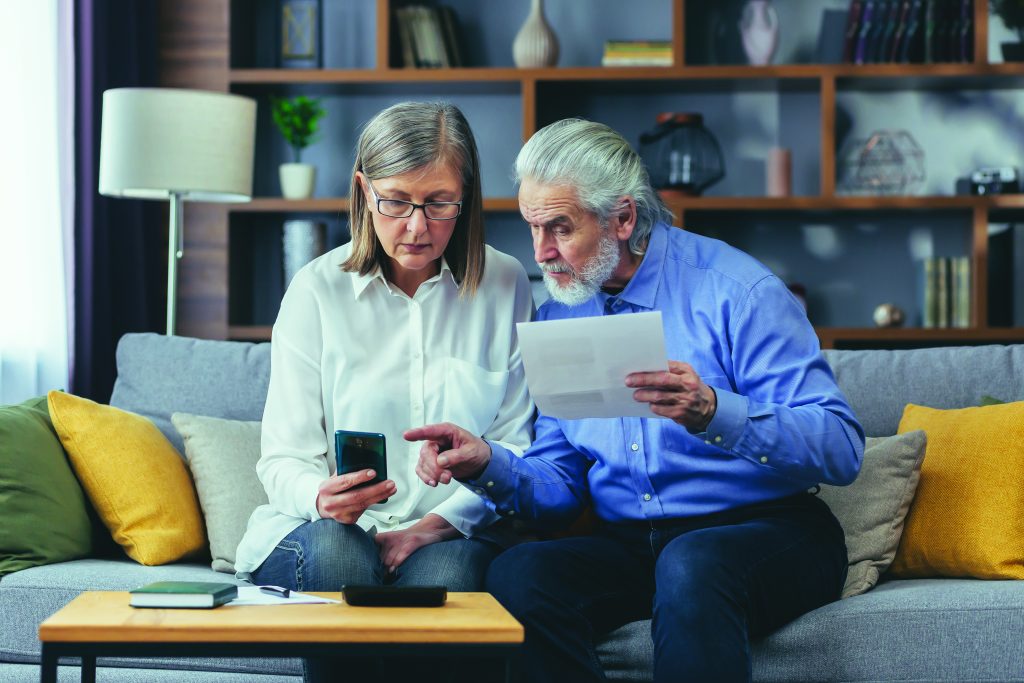
Technology trainer Kraig Perry knows the good and the not-so-good about older adults and technology.
A retired Fairhaven elementary school teacher, the 73-year-old has been training older individuals to use their computers and smart phones since 2008, starting out at the Fairhaven Senior Center, then adding classes at Coastline Elderly Services in New Bedford and, more recently, at the Connor Center for Active Living in Dartmouth.
Despite a reputation for being too afraid to embrace technology, Perry says older adults in the South Coast are eager to learn, especially the skills that allow them to fill daily needs online or on their phones including, but not limited to, staying connected with family and friends.
“They all want to know about their phone. They tell me, ‘I’ve got this expensive phone and I don’t know how to work it,’” Perry said, adding. “They want to use apps like Stop & Shop’s and they can’t because they can’t figure them out and there’s no one to turn to.”
Perry’s classes can help. They are free and kept intentionally small so those new to technology can receive one-on-one assistance when needed. They’re also tailored to beginners and those ready for more indepth work.
The fact that older adults are seeking out training is good news in an increasingly digital world, because they, like everyone else, need to understand technology to continue to be able to access information, services, and economic opportunities.
That’s one of the motivations behind the state’s ongoing push to create internet access for all, access that includes those experiencing language, cultural, financial, education, or other barriers.
Massachusetts is committed to bringing affordable, reliable high-speed internet to every home in the state, says the Massachusetts Broadband Institute, an organization which recently completed a draft statewide strategic plan to achieve this goal.
The state has already been allocated $145 million through The Bipartisan Infrastructure Law for the work, MBI said, which includes creating digital equity programming.
Part of the Massachusetts Technology Collaborative, MBI spent the last year conducting listening sessions and other engagement activities to ensure the plan represents the views of a broad range of organizational stakeholders and residents.
The final product, a draft Statewide Digital Equity Plan, is now available for review and open for public comment until Dec. 15.
The statewide push reflects the importance of digital access in daily life. On its website, MBI says, that internet access today is as vital as electricity or phone service was in previous centuries, calling it “essential to fully participate in today’s society and critically important for our future prosperity.”
That means no generation can be left behind and live well.
James Fuccione, Executive Director of the Massachusetts Healthy Aging Collaborative, a network of community, health, and business leaders who come together to advance healthy aging, agrees. Fuccione and the collaborative have worked to ensure older adults have been included in the state plan.
Technology access, he said, impacts all aspects of life including social determinants of health – nonmedical factors that influence health outcomes like transportation options, food availability, medical access, and even civic engagement.
Technology can be needed to make a doctor’s appointment, request transportation (like Uber or Lyft), participate in public meetings, or take college classes from a distance, Fuccione said.
“Technology is one way to help people live how they want to live, to live independently to some extent, yes, but also just to live engaged,” said Fuccione. “(It’s important to) whatever any individual needs to thrive and be engaged in their community.”
That older adults want to learn is supported by a 2021 survey conducted by Pew Research Center that found older age groups are closing the digital gap with their younger counterparts.
The survey showed 61 percent of those age 65 or older own a smartphone compared to 96 percent of those age 18 to 29. That’s a 35-percentage point gap. Substantial, but still 53 points less than what it was in 2012 when only 13 percent of the 65+ age group had smartphones.
Locally, the growth in technology use is clear in Perry’s full classes across the South Coast and in a 2021 needs assessment survey by Coastline where older adults said technology access was their most important need.
Older students are not that different from his elementary age students, Perry said, at least not when it comes to being motivated to learn.
When he used to show school students something new they can do with technology, they would light up, Perry said. So too do the elderly.
“That’s the same reaction we get with the older students,” said Perry. “I call it the wow factor. They get excited, both generations, over learning something that they didn’t know about.”
Perry wants to see more done to help older adults access local training. There needs to be an increase in the number and types of classes as well as more publicity about them to reach older adults who may not be aware of them.
Those who have taken advantage of classes are also vocal about wanting more. Many who start as a beginner find their confidence grows and they’re ready to progress to the next level by the class’s end.
Surveys taken after each Coastline class are enthusiastic.
“I definitely feel less timid about trying things on my phone. I have even been able to share info with others,” wrote one senior after taking Perry’s class. “I would be interested in an intermediate class.”
Perry would like to create new classes too. One in particular would focus on apps and how to access and use them safely. He’d like to take older adults through the process of using specific apps – one app at a time.
It’s what they want, he said.
To comment on the state’s strategic plan, go to www.broadband.masstech.org/mainternetforallplan by Dec. 15.

Recent Comments